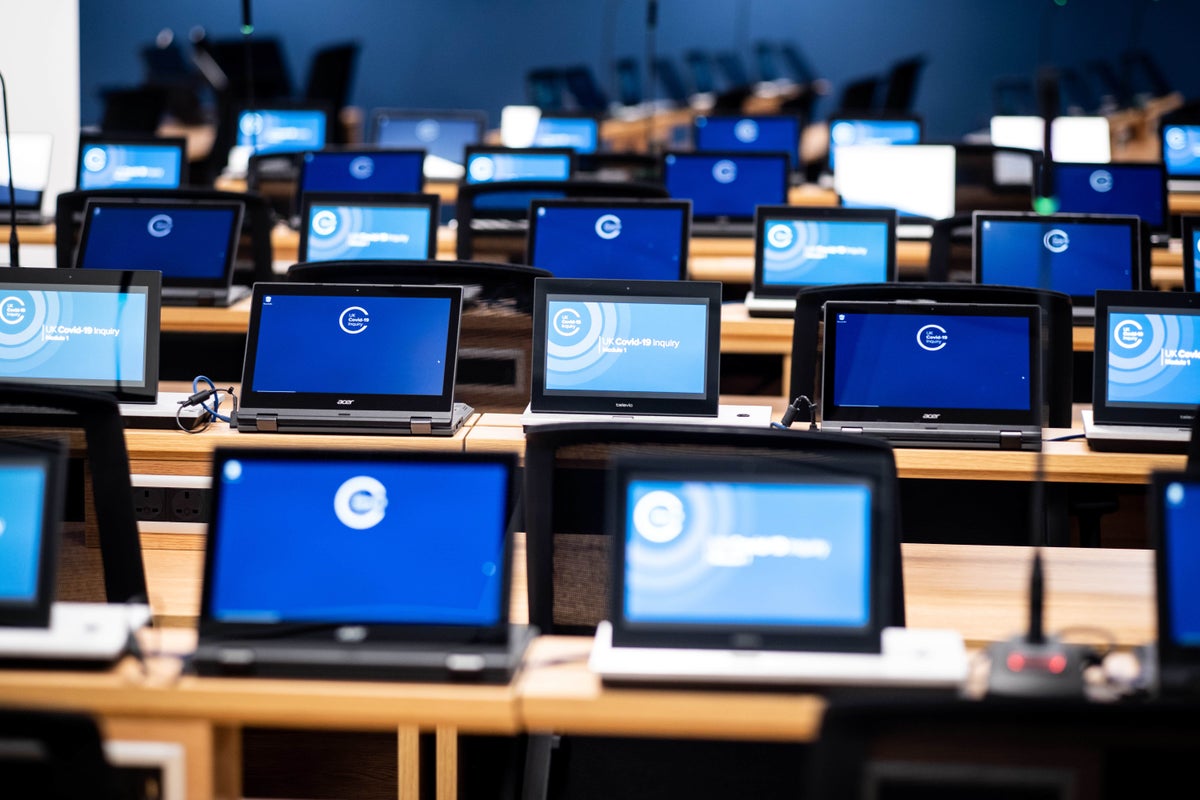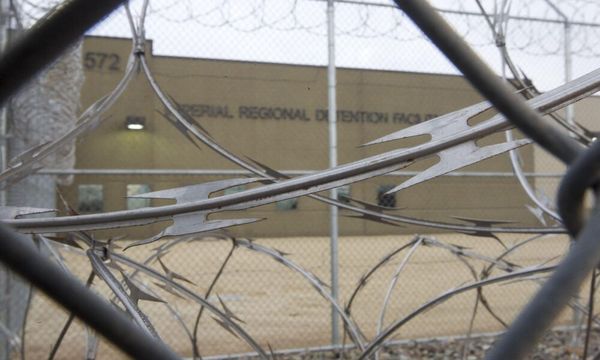
Efforts to improve the UK’s ability to cope with a severe pandemic were paused for the Government to focus on planning for the impacts of a no-deal Brexit, a Cabinet Office official has told the Covid inquiry.
Katharine Hammond, former director of the civil contingencies secretariat in the Cabinet Office, accepted that national lockdowns, the lengthy closure of schools and “total economic collapse” were not considered in planning for a pandemic event.
In October 2016, a cross-government exercise carried out to test the UK’s response to a serious influenza pandemic concluded that it was not prepared to “cope with the extreme demands of a severe pandemic”.
Was there any consideration, foresight or planning for total economic collapse, furlough scheme, for national support financially and for the closing of businesses and in effect the economy?— Hugo Keith KC, counsel to the inquiry
Ms Hammond agreed that the assessment “proved to be correct” and told the inquiry that the programme of work generated from the exercise was not completed before Covid-19 hit the UK because “elements” of it were paused to focus on “Operation Yellowhammer”.
“It was the cross-government planning effort for the impacts of a no-deal exit from the European Union,” she explained.
Ms Hammond cited the same operation as a reason for interfering with the work of the Pandemic Flu Readiness Board instituted in 2017 and with updating the Revision To Emergency Preparedness guidance issued in March 2012, which the witness said was not updated between then and 2020.
Questioned on the risk assessment for a pandemic, Ms Hammond conceded that several features of the coronavirus pandemic were not “anticipated or planned for” – including that there was no consideration of full national lockdowns.
She said there was discussion about schools being closed down but only on a “temporary” basis.
Hugo Keith KC, counsel to the inquiry, asked: “Was there any consideration, foresight or planning for total economic collapse, furlough scheme, for national support financially and for the closing of businesses and, in effect, the economy?”
Ms Hammond replied: “All of those things flow from the planning for a lockdown, so the answer follows no.”
The news that the Cabinet Office hadn’t done any preparations for lockdowns prior to the pandemic is absolutely horrific for families like mine— Rivka Gottlieb, Covid-19 Bereaved Families for Justice
She also admitted that risk assessments did not identify the need for personal protective equipment over such a long period of time and in such large quantities and that mass contact tracing, a lack of “antiviral” for coronavirus and the lack of a vaccine was not anticipated or planned for.
Rivka Gottlieb, spokesperson for Covid-19 Bereaved Families for Justice, said: “The news that the Cabinet Office hadn’t done any preparations for lockdowns prior to the pandemic is absolutely horrific for families like mine.
“The risk of a pandemic was common knowledge but it’s clear that the Government was caught completely unprepared.”
The inquiry also heard that the UK entered the coronavirus pandemic with “depleted” public services and widening health inequalities.
A report prepared jointly by professors Sir Michael Marmot, an expert in epidemiology and director of the University College London Institute of Health Equity, and Clare Bambra, an expert in public health from Newcastle University, said Government austerity policies impacted the health of the nation in the lead up to the pandemic.
The report was filed as part of the first week of public hearings in the Covid inquiry, which is exploring the UK’s preparedness for a pandemic.
In short, the UK entered the pandemic with its public services depleted, health improvements stalled, health inequalities increased and health among the poorest people in a state of decline— Experts' report
The “expert opinion” report highlighted health inequalities in the UK, including regional differences when it comes to things such as life expectancy and the number of deaths which can be impacted by the quality of healthcare.
Kate Blackwell KC, counsel to the inquiry, read from the report, which said Government austerity policies after 2010 had “an adverse effect on health inequalities”.
The report concluded: “It is plausible that adverse trends in the social determinants of health since 2010 led to the worsening health picture in the decade before the onset of the pandemic.
“In short, the UK entered the pandemic with its public services depleted, health improvements stalled, health inequalities increased and health among the poorest people in a state of decline.”
Sir Michael told the inquiry that social care and public health spending had gone down before the pandemic, especially in the most deprived parts of the country.
Citing the Government’s own data, he said it showed that the “greater the deprivation, the greater the need, the greater the need, the greater the reduction in local authority spend in general … That will damage the health of people, other things equal, and will contribute to inequalities in health.”
You've got to plan for better health and narrow health inequalities, and that will protect you in the pandemic— Prof Sir Michael Marmot
Sir Michael later said it was his general view “that if you look at the evidence from previous pandemics, including the current one that we’re considering, that the impact of the pandemic is very much influenced by pre-existing inequalities in society, including inequalities in health.”
He said it was not just about “whether there was a report somewhere in Government about planning for a pandemic, you’ve got to plan for better health and narrow health inequalities, and that will protect you in the pandemic.”
The inquiry heard that life expectancy was in decline, particularly among poorer groups, by the time the pandemic hit the UK.
The NHS was also under pressure, with large numbers of staff vacancies.
The inquiry also heard how Prof Bambra had reviewed reports and material from Government and public health exercises such as Winter Willow in 2007, Alice in 2016 and Broad Street in 2018, but none of them included consideration of health inequalities or how specific groups might be at risk from Covid.







